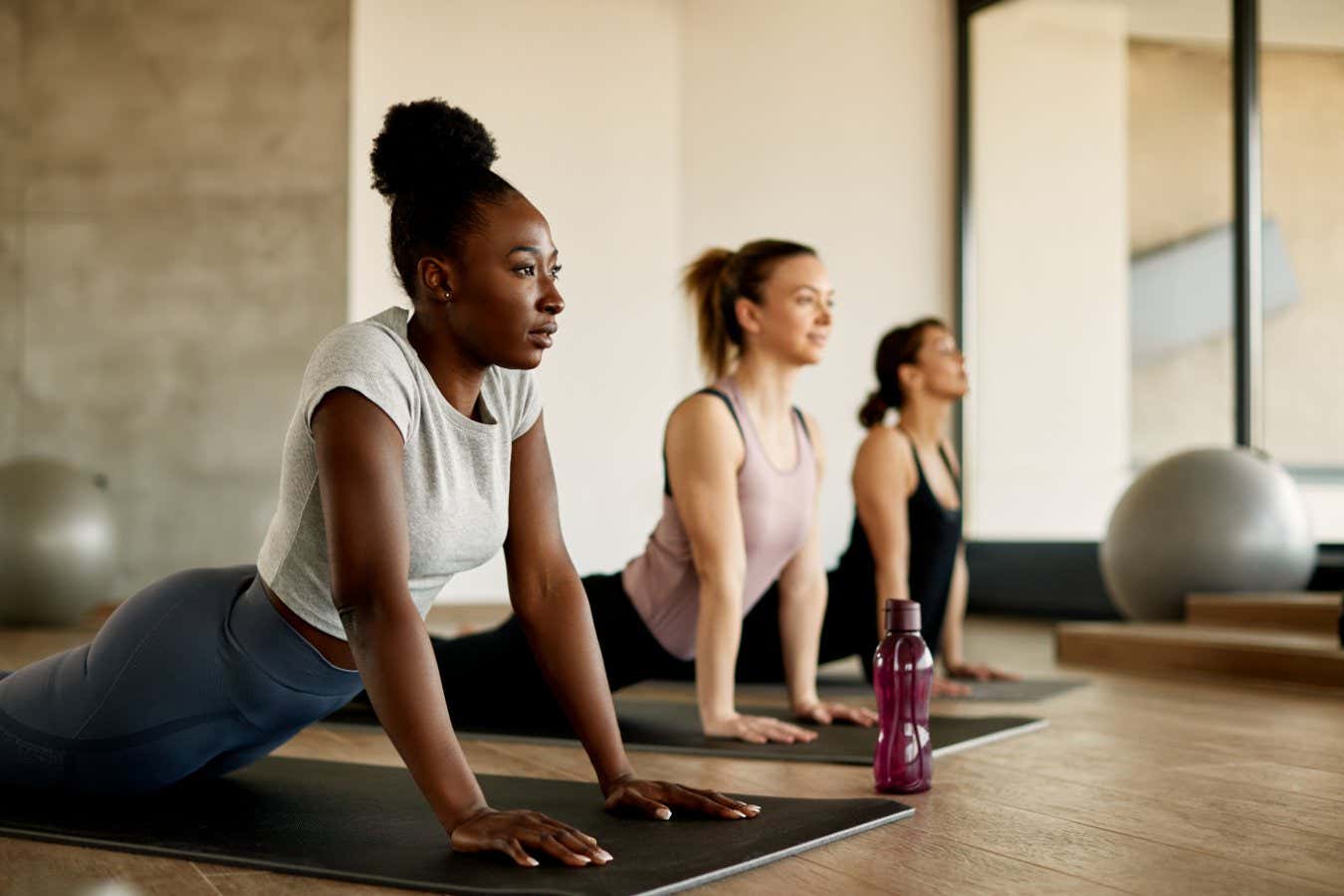
Yoga came out on top, when it came to improving sleep
Shutterstock/Drazen Zigic
The last thing I want to do after a bad night of sleep is exercise, even though I know it will probably help me to sleep better. Strenuous activity just isn’t appealing when you are running on a few hours of shut-eye. But I was surprised to learn that pushing yourself at the gym may not actually be the best approach for improving sleep.
A recent analysis of 22 studies of more than 1300 adults with insomnia examined how seven exercise-based interventions affected sleep. It found that gentler activities, like yoga and tai chi, improved sleep more than strenuous ones, such as strength training or aerobic exercises.
Yoga (pictured) came out on top. It increased total sleep time by almost 2 hours, on average, compared with the control group. This improvement was even greater than the effects of cognitive behavioural therapy – the standard treatment for insomnia – which boosted sleep time by about an hour. Tai chi led to an extra 52 minutes of sleep. The exercises didn’t just help people sleep longer, they also reduced how often they woke, and how long it took them to fall asleep.
I have to admit, I was a bit surprised by these findings. Part of me had assumed that one reason exercise improves sleep is because it simply wears you out. Yet these results suggest that isn’t the case. Strenuous activities had a negligible effect on sleep.
So what is it about gentler workouts that makes them so good for catching z’s? It may have to do with the emphasis on controlled breathing and body awareness. Research shows that mindfulness-based workouts, such as yoga and tai chi, decrease activity in the sympathetic nervous system, which governs our body’s fight-or-flight response. As a result, blood pressure and heart rate drop and levels of the stress hormone cortisol decline. This, in turn, alleviates the depressive and anxiety symptoms that so often hinder sleep.
These results don’t mean that other types of exercise aren’t helpful for insomnia. In fact, walking or jogging led to the biggest drop in Insomnia Severity Index scores, a scale that measures not only sleep quality, but also how sleep issues affect mood, focus and memory. Because walking or jogging didn’t appear to improve sleep itself, the score reduction may indicate that light aerobic activity helps mitigate the daytime effects of insomnia.
I am always thankful for research like this, as it reminds me that exercise is about so much more than pushing my body to the max. I can catch myself thinking that a workout doesn’t count if it didn’t feel physically taxing. And that just isn’t true! Heck, turning it down a level seems to come with its own set of benefits, like better sleep. Plus, rolling out my yoga mat feels a bit more manageable after a sleepless night than logging a few miles on the treadmill.
Grace Wade is a health reporter for New Scientist based in the US
These articles are posted each week at newscientist.com/maker
Topics:
Source link : https://www.newscientist.com/article/mg26735561-200-the-surprising-exercises-that-will-improve-your-sleep/?utm_campaign=RSS%7CNSNS&utm_source=NSNS&utm_medium=RSS&utm_content=home
Author :
Publish date : 2025-08-13 18:00:00
Copyright for syndicated content belongs to the linked Source.